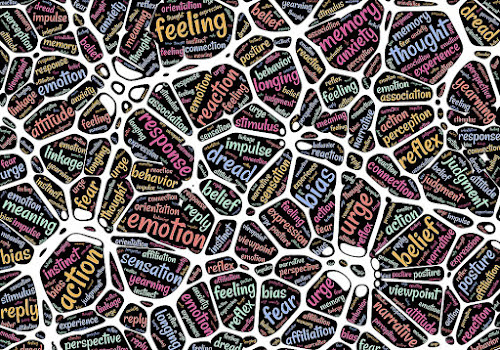Lack of Motivation, Awareness, Information and Research
“People are always blaming their circumstances for what they are. I don't believe in circumstances. The people who get on in this world are the people who get up and look for the circumstances they want, and if they can't find them, make them.”― George Bernard Shaw
Apathy and the Lack of Motivation
Lack of Motivation Research
Diminished Motivation
"Diminished motivation refers to a decrease in one's drive, desire, or willingness to engage in activities or pursue goals. Several factors can contribute to diminished motivation, including:
1. Lack of clarity or meaningful goals: When individuals lack clear goals or a sense of purpose, they may struggle to find motivation. Without a sense of direction, it becomes challenging to stay motivated and focused on specific tasks or activities.
2. Burnout: Prolonged periods of stress, overwhelm, or excessive workload can lead to burnout. Burnout is characterized by emotional exhaustion, reduced energy, and a loss of motivation. It can occur in various areas of life, including work, relationships, or personal pursuits.
3. Fear of failure or perfectionism: The fear of failure or a desire for perfection can hinder motivation. When individuals feel overwhelmed by the pressure to meet high standards or fear the consequences of making mistakes, they may become demotivated or avoid taking action altogether.
4. Lack of rewards or recognition: A lack of positive reinforcement, recognition, or rewards for efforts can diminish motivation. When individuals feel that their hard work goes unnoticed or unrewarded, they may lose motivation to continue putting in the effort.
5. Negative mindset or self-doubt: Negative thoughts, self-doubt, or a pessimistic mindset can drain motivation. Believing that one's efforts will not lead to success or underestimating one's abilities can create a sense of hopelessness and diminish motivation.
6. Lack of interest or engagement: When individuals are not genuinely interested or engaged in a particular task or activity, motivation naturally declines. If the activities are repetitive, monotonous, or do not align with one's passions or values, it becomes challenging to find the drive to stay motivated.
To address diminished motivation, consider the following strategies:
1. Set meaningful goals: Establish clear and meaningful goals that align with your values and aspirations. Break them down into smaller, manageable tasks to create a sense of progress and accomplishment.
2. Cultivate a positive mindset: Challenge negative thoughts, practice self-compassion, and focus on your strengths and past successes. Cultivating a positive mindset can help counteract demotivating beliefs.
3. Find intrinsic motivation: Identify the intrinsic rewards of the tasks or activities you engage in. Focus on the enjoyment, personal growth, or learning that comes from engaging in the activity itself, rather than solely seeking external rewards or recognition.
4. Seek support and accountability: Share your goals and progress with others who can provide support, encouragement, and accountability. Working with a mentor, coach, or supportive peers can help boost motivation and keep you on track.
5. Take breaks and practice self-care: It's essential to take breaks and engage in self-care activities to recharge and prevent burnout. Taking care of your physical and mental well-being can positively impact your motivation levels.
6. Break tasks into smaller steps: If a task feels overwhelming or intimidating, break it down into smaller, more manageable steps. Celebrate the completion of each step to maintain motivation and momentum.
Remember that motivation can ebb and flow, and it's natural to experience periods of diminished motivation. By understanding the underlying factors and implementing strategies to address them, you can work towards rekindling your motivation and moving forward towards your goals." Source: ChatGPT 2023)
Apathy and Related Disorders of Diminished Motivation Neupsy Key
Apathy Who Cares? An Introduction to Apathy and Related Disorders of Diminished Motivation Psychiatric Annals
Avolition: A Symptom of Multiple Mental Health Conditions That Is More Than Just a Lack of Motivation Verywell Health
Apathy Who Cares? An Introduction to Apathy and Related Disorders of Diminished Motivation Psychiatric Annals
Avolition: A Symptom of Multiple Mental Health Conditions That Is More Than Just a Lack of Motivation Verywell Health
Diagnostic criteria for apathy in neurocognitive disorders Alzheimer's Association
Is it time to revise the Diagnostic Criteria for Apathy in Brain Disorders? Cambridge Core
Neurobehavioral Initiation and Motivation Problems After Acquired Brain Injury Frontiers in Neurology
The Neuropsychiatric Spectrum of Motivational Disorders Psychiatry Online
Differential Diagnosis of Apathy and Related Disorders of Diminished Motivation ProQuest
Disorders of Diminished Motivation NIH
Disorders of Diminished
Motivation: PDF Download Robert S. Marin, MD; Patricia A. Wilkosz, MD, PhD
Disorders of Diminished Motivation: What they are, and how to treat them MDege
Disorders of diminished motivation: What they are, and how to treat them: These disorders share features of depression, delirium, and catatonia, but key differences have major treatment implications Gale
Disorders of diminished motivation: What they are, and how to treat them: These disorders share features of depression, delirium, and catatonia, but key differences have major treatment implications Gale
On the Pathophysiology and Treatment of Akinetic Mutism ScienceDirect
The Reasons of Lack of Motivation from Students' and Teachers' Voices ResearchGate
How to Deal With Apathy : Psychology & Mental Health - Mental Health Video
